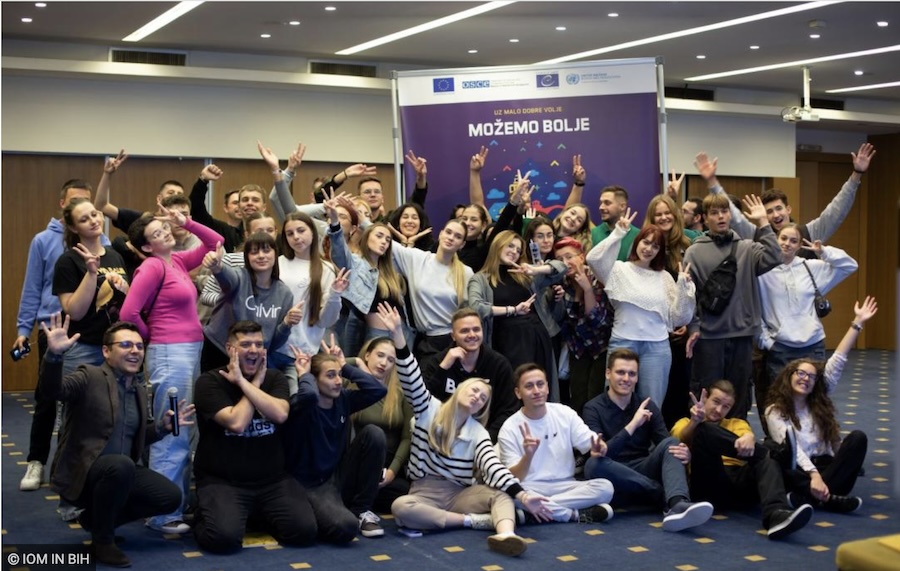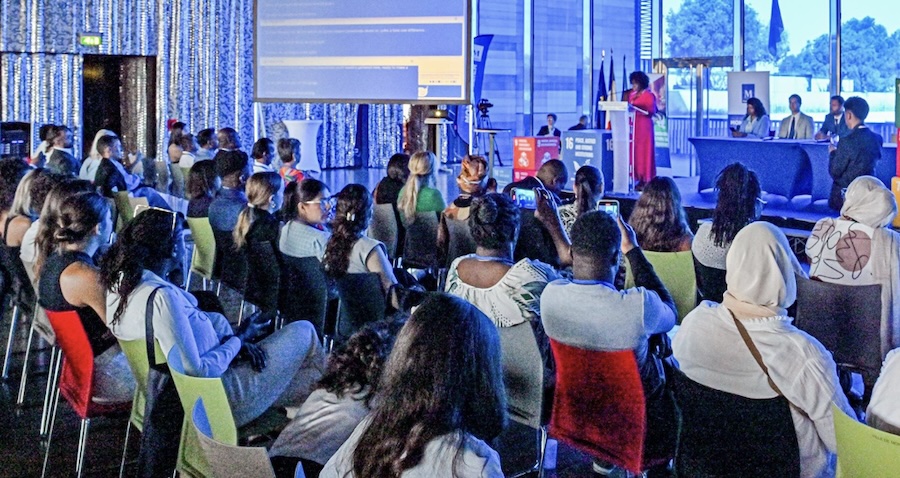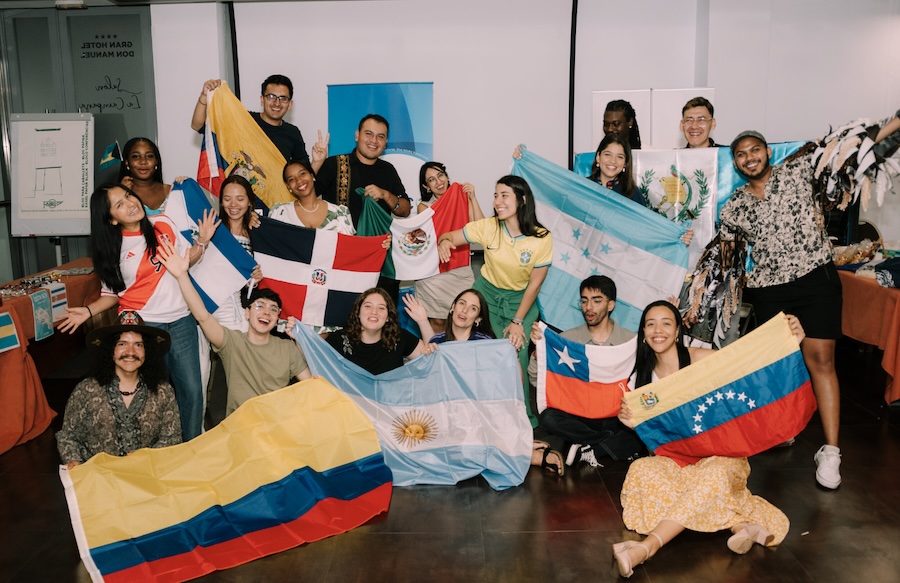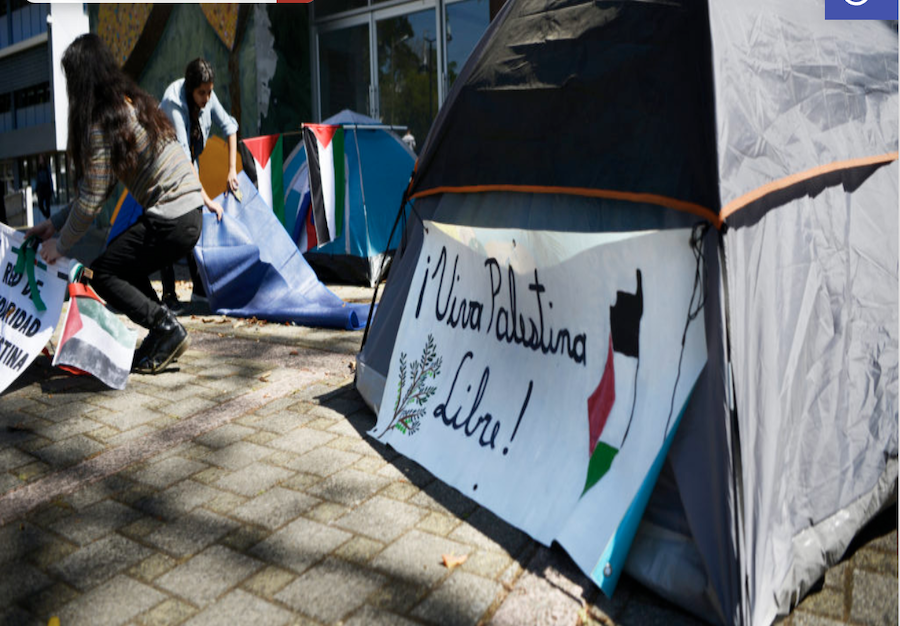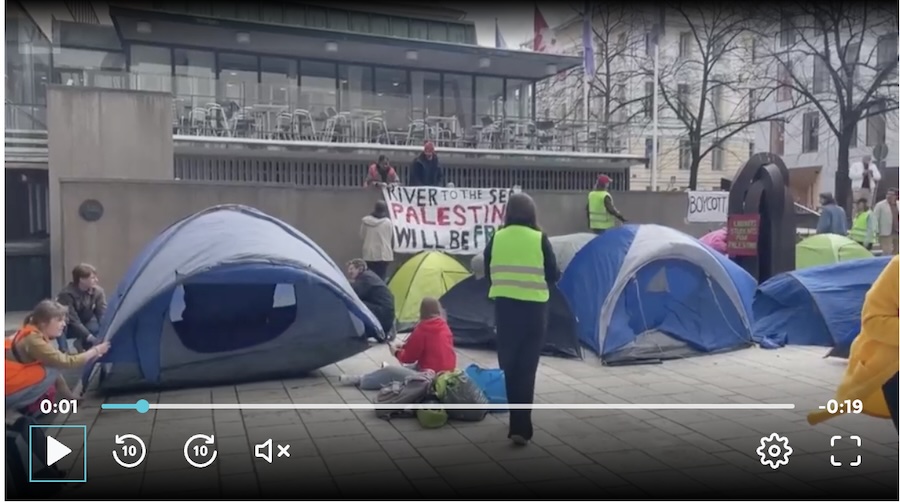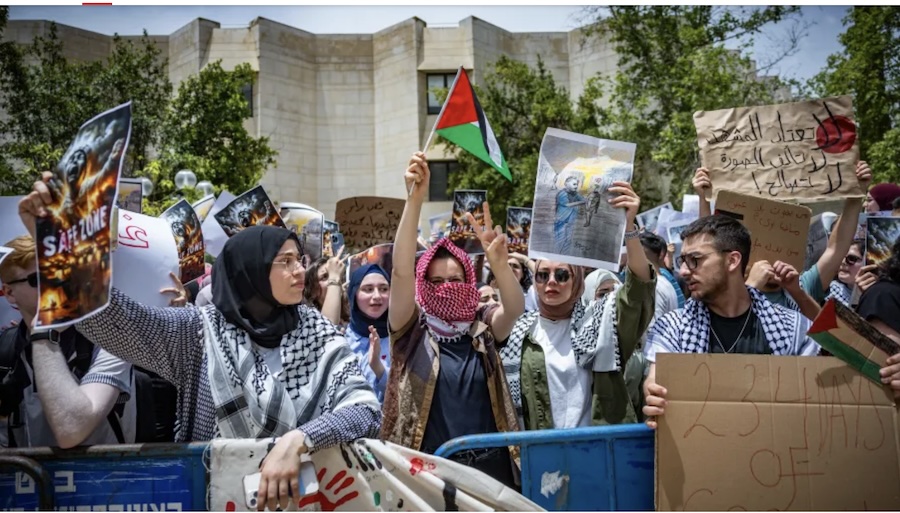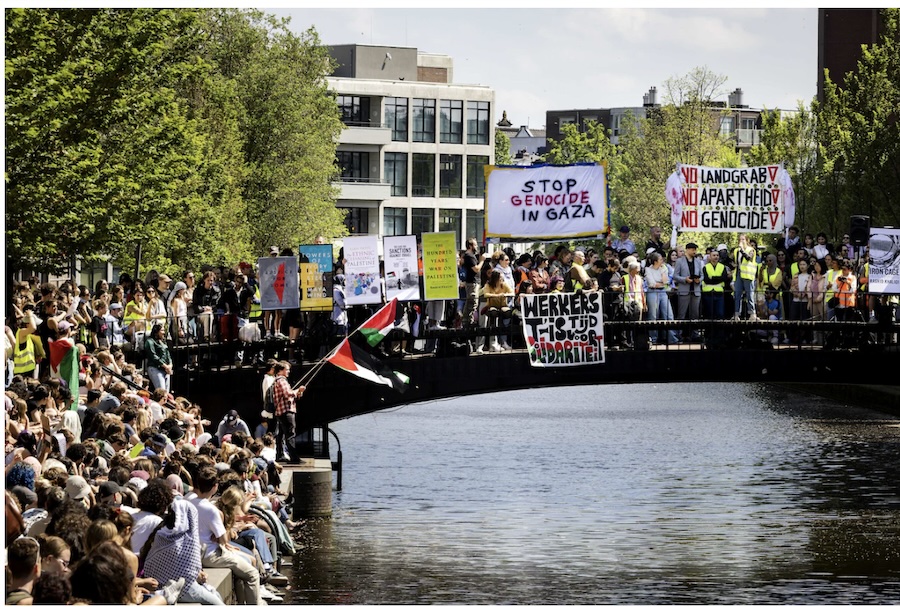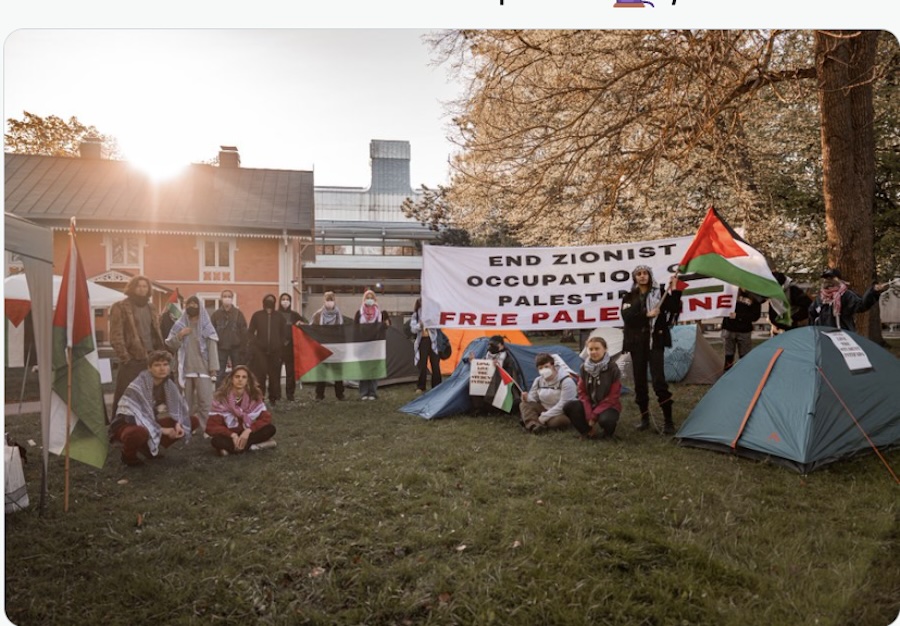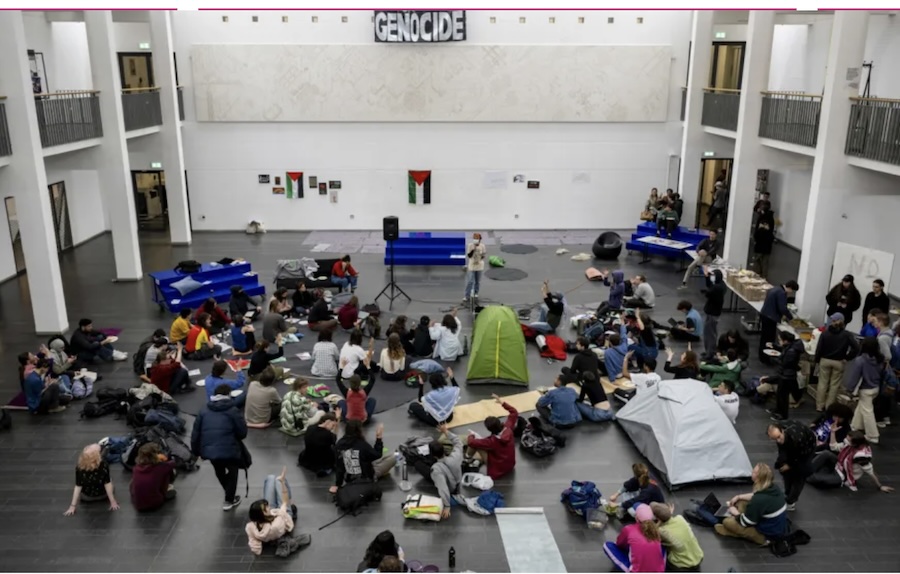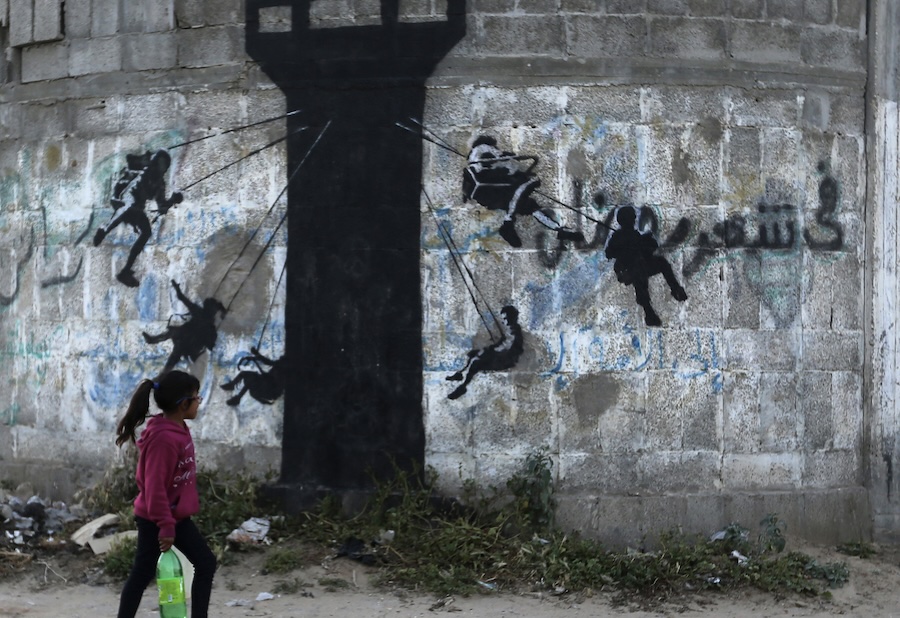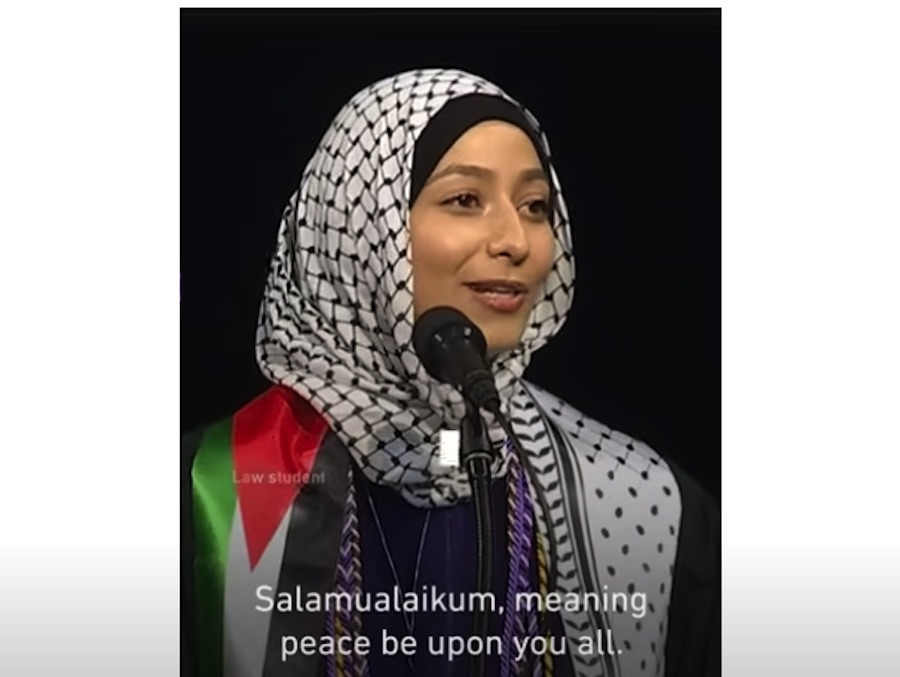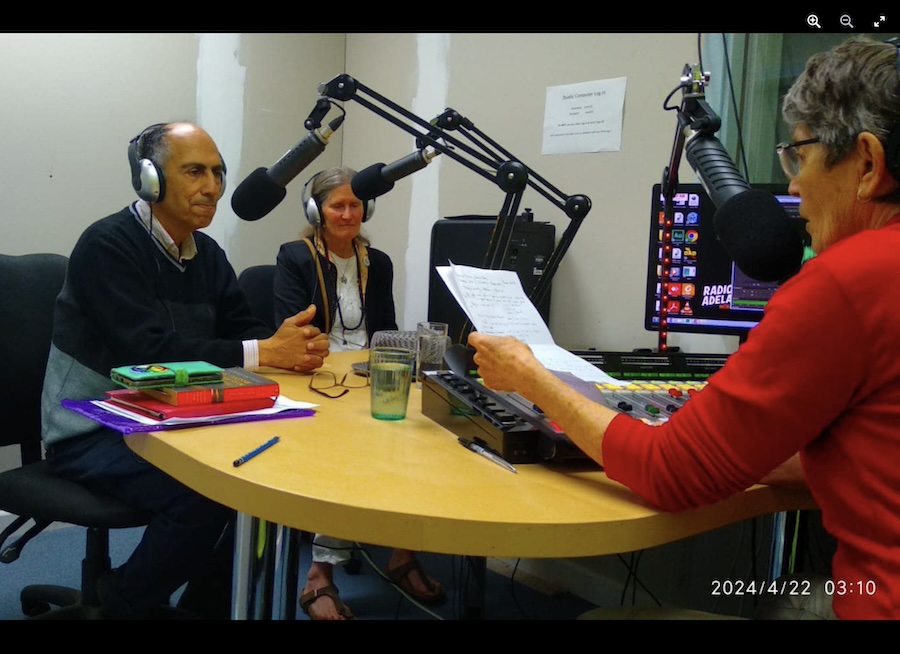. TOLERANCE & SOLIDARITY .
An article from Bahai
What does it mean to be a “practitioner of peace” in today’s world? For over 700 young people who gathered at Wilfrid Laurier University in Waterloo this question sparked profound conversations about how to nurture communities that can embody the fundamental principles of peace through practical action.
The two-day conference drew participants from 92 localities across Ontario—from those within walking distance of the venue to a group who undertook a 15-hour journey from Thunder Bay.

Several participants spoke with the News Service, reflecting on their community-building experiences and shared insights from their discussions at the conference.
Fostering a culture of peace
Attendees described how everyday efforts to create spiritual and social conditions for unity are gradually fostering a culture of peace in their neighborhoods. In these places, people are striving to give expression to the principle of the equality of women and men and are developing a heightened awareness of the essential need for justice and fairness in all aspects of community life—from how decisions are made to how knowledge is shared and applied.
Through Bahá’í community-building initiatives that promote genuine love and durable bonds among individuals, people from diverse groups that once had limited interaction are discovering their inherent oneness and learning to work together for the common good.
“There’s a lot of destruction, hurt, and pain in the world,” said Naya, who is 17 years old. “This is the time for us to come together as a community,” she continued, “to uplift… and take care of each other, because we are one.”
Shidan, 15, from a locality where families of diverse ethnic backgrounds reside, elaborated: “In the past, people in my community were separated by caste, religion, and economic status.
“But through the spiritual education of the younger generation, we’ve found ways to bring our families, who are from different groups, together to have a common conversation about the future of our community.”
He added: “When I think about working toward peace, I see it already in the vibrant community celebrations we hold at our neighborhood center, in the dance group that started and recently had its first anniversary, and in the devotional gatherings that draw all of us from seemingly different backgrounds to see our inherent oneness.”
Removing barriers to unity through consultation
In communities where Bahá’í educational endeavors are taking root, consultation has emerged as a powerful tool for fostering a culture of peace through collective decision-making. Participants are discovering how to transcend social barriers and build agreement.
Participants of the conference highlighted how spaces for consultation have the power to reveal our shared humanity. Perma, 20, said, “In these moments, barriers are broken down. People come together, discover common ground, and realize that they are all striving toward the same aspirations.”
Speaking about the unique nature of these consultative spaces, Jenny, 18, said, “Not many places provide opportunities to discuss life’s most important issues.
“Sometimes, you want to talk about significant topics but don’t know when or where to do it. …Bahá’í spiritual education activities provide that space, allowing us to explore critical issues and think about practical solutions.”
Strengthening a sense of purpose through service
Participants of the conference observed that a striking feature of Bahá’í community-building activities is how they nurture in young people the capacity to rise above prejudice and channel their energies toward constructive change. Attendees spoke about how serving others, particularly those younger than themselves, has reshaped their understanding of what youth can achieve.
Many of these participants serve as teachers of Bahá’í moral classes for children or facilitators of groups for adolescents. “You see them progress,” shared Preeti, who is 16. “They’re becoming more open and more social. …They have more ideas. They’re raising their hands more. …It’s such a big thing.”
(continued in right column)
Youth initiatives for a culture of peace, How can we ensure they get the attention and funding they deserve?
(continued from left column)
David, 15, described how his involvement in Bahá’í educational programs awakened his sense of purpose—echoing a central theme of the gathering:
“You can take action now. You don’t have to wait until you’re older,” said David.
“Realizing I could contribute to my community was truly empowering and has inspired me to assist in the development of those younger than me.”
Through the experience of service, participants described how a shared vision of social progress has enabled them to face challenges with greater resilience. As they support one another in addressing difficulties, their unity of purpose strengthens their collective capacity to persevere through daily challenges.
United by this spirit of mutual support, participants are discovering how their combined efforts, guided by spiritual principles, can transform their neighborhoods in ways that would be impossible to achieve alone.
David explained that witnessing the difficulties young people encounter motivated him to engage them in service to their neighbors. “We began by observing the needs of our neighborhood and determining how we could address them,” he said.
One particular experience left a lasting impression on him. “We assisted a neighbor who was living alone and had accumulated a significant amount of garbage that she couldn’t move while she was pregnant. As we worked together, clearing the yard and planting roses, I noticed the children’s smiles,” he recalled. “They even began asking questions about why we were doing this and how we could expand these efforts.”
David reflected on the broader impact of these actions. “It brought me great happiness to see how, by shifting their focus to service, the negative environment they had been exposed to was gradually being transformed.”
Living a coherent life
The conference explored how achieving lasting social change requires a profound transformation in how young people view their lives and purpose.
Participants discussed how certain patterns of thought often separate academic achievement, personal development, and service to society into distinct domains. However, through their engagement with Bahá’í moral and spiritual education programs, these youth are discovering a more integrated approach to life.
Reflecting on how this integrated understanding challenges prevailing notions of value and success, Ken, 19, said: “Other young people come and ask us why we do this, why we help the community, why we help them and what value we get out of it. What I tell them is that the value you’re thinking of is monetary value… You’re thinking about how ‘I can help myself,’ … ‘If I get anything out of it.’”
Ken added that the real reward comes from seeing positive change in their communities and contributing to others’ well-being—a fulfillment that transcends material considerations.
This understanding is reshaping how youth are approaching their career choices. Perma described her journey: “When I started my career, I didn’t know what I wanted to do. I chose healthcare to help people but was confused about my role.
“Now, I see a new direction in policymaking because many issues in the healthcare system need addressing. It’s easy to complain about what’s wrong, but realizing I can make a difference is powerful. I want to shift my career so I’m not waiting for change but actively initiating it and contributing to my community.”
Looking ahead, the youth made plans for activities in the coming months that could engage over 20,000 of their peers in a growing movement dedicated to community transformation through systematic, collective action.
As these youth return to their communities to implement their plans, their enthusiasm points to the far-reaching impact of their collective efforts. As Livia, a 19-year-old from Stratford, expressed, “I can’t wait to see what this conference is going to bring for the future.”
The Bahá’í World News Service has released a short documentary about the conference and the efforts of youth in Ontario toward the common good, which can be viewed here.
(Thank you to Peter Newton for having sent this article to CPNN.)
– – – – – –
If you wish to make a comment on this article, you may write to coordinator@cpnn-world.org with the title “Comment on United Nations Alliance of Civilizations” and we will put your comment on line. Because of the flood of spam, we have discontinued the direct application of comments.
